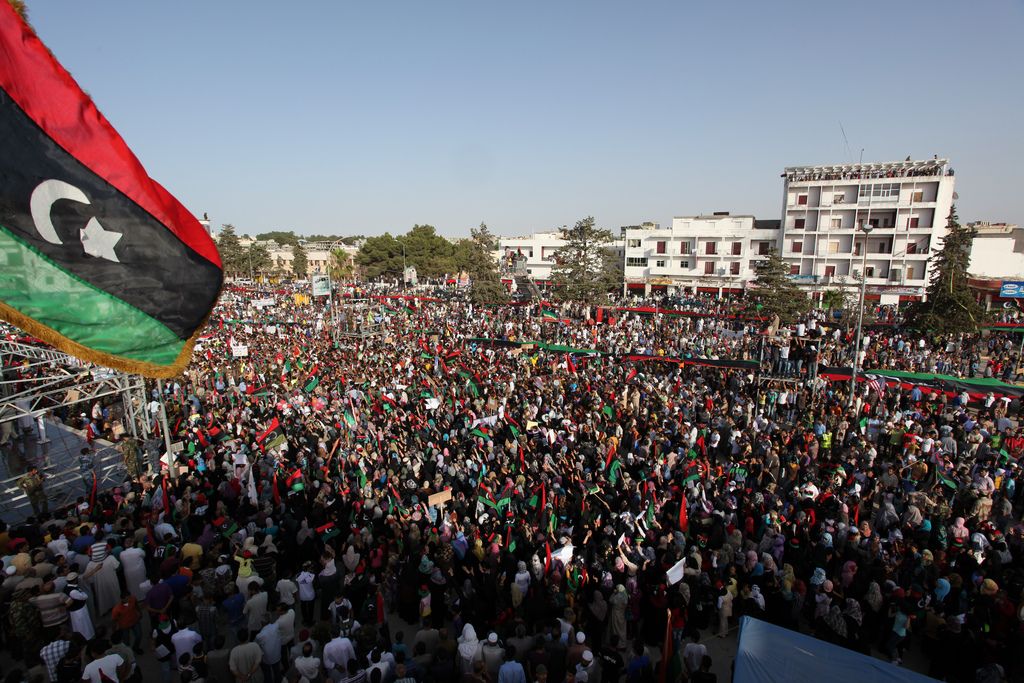How do you spell Gaddafi anyway?

Wherever people long to be free, they will find a friend in the United States.
Tonight, President Obama addressed the nation regarding his recent military action in the fledgling revolution in Libya. Enforcing a no-fly zone and striking military targets to prevent a massacre of innocents, the United States has worked with NATO and other allies to prevent eminent bloodshed at the hands of Gaddafi’s agents. But our commander-in-chief has come under fire: are we, military hegemon to the world, doing enough?
The answer, of course, isn’t simple. Tonight isn’t the last of violence in Libya, and more innocents will doubtless be murdered before we see the end of this revolution. Warships and fighter planes operating from the Mediterranean have done their part to secure the civilians’ safety, but there is still a great deal of responsibility to fall in NATO’s hands come Wednesday. Obama outlined a plan to hand over primary leadership of this operation over to NATO and our other allies, with the US participating in a logistical and support role.
But was this really our fight? Obama presented the argument that our American conscious necessitated action to protect innocents fighting for their fundamental freedoms, and I’d imagine most Americans would be inclined to agree with him. “With great power comes great responsibility” is a sentiment which applies more broadly than just in a Marvel comic book adaptation, and informs the stance the United States has adopted in international policy since the second world war. We, with the capabilities to prevent genocide and protect human rights, are obligated to do so.
Critics have already begun questioning this line of reasoning, however. Why just Libya? Why not also then Darfur, Iran, North Korea? The answer is, in this case, rather simple: Libya represents a tipping point in the region, another domino in the Jasmine Revolution chain reaction. In a volatile region recently shaken by a handful of democratic revolutions, the flow of progress must not falter. How many further nations under repression, inspired by Libya’s eventual success just as Egypt and others were inspired by Tunisia’s, will follow suit? And how many of those would have been discouraged by the threatened humanitarian disaster that the United States and others have prevented over the past ten days?
In short, this is exactly the sort of military business I prefer my tax money to fund: minimal engagement and casualties with maximum efficacy. With a coalition — a true coalition — at our side, not behind us. This is the Obama Doctrine: it’s not America’s job to police the world, but it’s our choice to protect its innocents. And I’m proud of my president for choosing nobly.